Notebook
-
 Health & Medicine
Health & Medicine50 years ago, methadone made a rosy debut
Heralded as the “answer to heroin addiction,” methadone is still used to treat opiate addiction, despite risks.
-
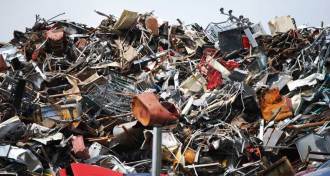 Environment
EnvironmentHumans’ stuff vastly outweighs humans
The human-made technosphere weighs 30 trillion tons and surpasses the natural biosphere in mass and diversity, researchers estimate.
-
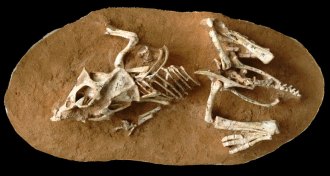 Paleontology
PaleontologyBaby dinosaurs took three to six months to hatch
Growth lines on teeth indicate a surprisingly long incubation period.
-
 Planetary Science
Planetary ScienceWeird wave found in Venus’ wind-whipped atmosphere
A 10,000-kilometer-long gravity wave arched across the upper atmosphere of Venus. The feature may have been the largest of its kind in the solar system.
-
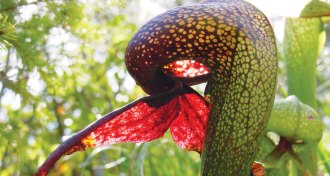 Plants
PlantsMeat-eating pitcher plants raise deathtraps to an art
The carnivorous California pitcher plant ensnares its dinner using a medley of techniques.
By Susan Milius -
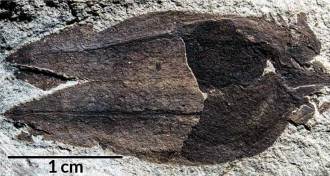 Paleontology
PaleontologyTomatillo fossil is oldest nightshade plant
Two 52-million-year-old tomatillo fossils in Patagonia push the origin of nightshade plants back millions of years, to the time when dinosaurs roamed.
By Meghan Rosen -
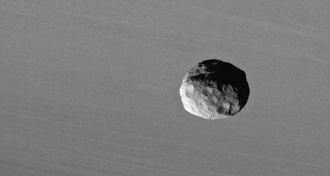 Astronomy
AstronomySaturn’s 10th moon was the first satellite discovered in the modern space age
Fifty years ago, astronomers knew of 10 moons orbiting Saturn. Since then they’ve catalogued a diverse set of 62 satellites, with the help of the Cassini spacecraft.
-
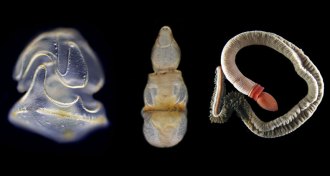 Animals
AnimalsThese acorn worms have a head for swimming
The larvae of one type of acorn worm are basically “swimming heads,” according to new genetic analyses.
-
 Archaeology
ArchaeologyAncient Egyptian pot burials were not just for the poor
In ancient Egypt, using pots for burial containers was a symbolic choice, not a last resort, archaeologists say.
-
 Genetics
Genetics50 years ago, alcohol use was linked to several gene variants
50 years later, scientists are still searching for genes that influence drinking.
-
 Planetary Science
Planetary ScienceMoon’s lava tubes could be colossal
Lava tubes inside the moon could remain structurally sound up to 5 kilometers across and offer prime real estate for lunar colonists.
-
 Health & Medicine
Health & MedicineBirth defects occur in 1 in 10 pregnancies with first trimester Zika infection
About 6 percent of U.S. women infected with Zika virus have infants or fetuses with birth defects, according to preliminary CDC results. For women infected in the first trimester, the number is even higher: nearly 11 percent.
By Meghan Rosen